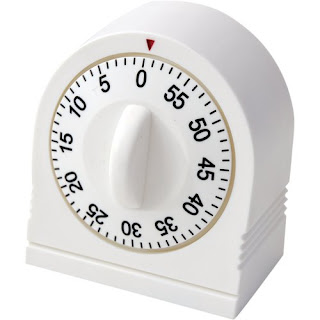 |
| Fig. 1: The foundation of an addictive mobile game |
Among the games I tried were:
- Monument Valley
- Pokemon Shuffle
- Alphabear
- Crashlands
- Magic the Gathering Puzzle Quest
- Commute
I'll put the Electronic Arts lineup of mobile offerings in a separate category:
- Tetris Blitz
- Tetris
- Bejeweled Blitz
- Bejeweled
- Peggle Blast
- Star Wars Galaxy of Heroes
SimCity BuildIt
 |
| Fig. 2: Pokemon Shuffle is not free, and neither is anything else on mobile |
The only games in these lists that have an up-front cost are Monument Valley and Crashlands, both around $5. I don't think it's a coincidence that these games feel much more complete and focused on providing a great game than the "free" alternatives.
 |
| Fig. 3: After every single game, Tetris Blitz prompts you to spend money for more points if you didn't at the start. |
That said, the task of beating down on mobile games for being deceptively un-free is not a new one. Most gamers and non-gamers alike understand that free* games come with many asterisks.
Why would any developer create a game that doesn't make money? The real challenge for the gamer comes down to finding games that strike a good balance between asking for money and providing a game.
To find an example of how NOT to do this, just download Tetris Blitz and try playing it more than a few games. If you want to play with the power-ups that far outstrip player skill in score importance, you will use up $20 of power-ups in a matter of a half hour. The game encourages you to do head-to-head score comparison "battles" that mostly exist to take advantage of people's competitive drive in a game where points are purchasable. The lottery-board that offers free game currency is enough to maybe play a single maxed out game every few days, if you remember to play the lottery several times a day, then close the game. Don't forget the ads between everything you do!
 |
| Fig. 4: Finishers are where you can easily double your score. You get 3 games worth of finishers here. Great value! Only $20! |
It's an abusive garbage business model layered on top of a great game, ruining the game but probably making the creators good money.
You can't even play the older standard Tetris app without it prompting you, regularly, to go download Tetris Blitz instead. Perhaps that's because the old Tetris app didn't sell points.
 |
| Fig. 5: an actual Skinner box |
The fairer of these mobile games rely heavily on setting digital egg timers. For everything. Particularly timers for your lives and timers for dispensing free in-game money, which is typically separate from paid in-game money. It all comes down to a simple concept that many college graduates learn about in an introductory Psychology class: the Skinner Box.
It's easy to think you're having fun with these set-ups, but realize that they're only a source of stress after you've spent enough time away from them. Some games are almost entirely a complex web of operant conditioning, with dazzling lights and "unlockable" items and currencies feeding into new ways to make a number go up. Star Wars Galaxy of Heroes is the most blatant offender in this regard; your input during battles matters very little compared to "how high your number is", and you will spend a huge amount of your time feeding currencies and items into systems that unlock new ways to acquire currencies and items, all to make that number higher. From my understanding, this is true of a large number of popular mobile games, like Clash of Clans and Boom Beach, compounded by the utter impossibility of remaining competitive without spending money.
Despite all this, I still have fun with some of these games. The key is not to get caught up in an abusive relationship with a game that is just waiting patiently for you to crack and throw $20, even $50 at it. It would be nice if more game developers would spend time in the middle ground. When a game is worth playing without spending money, I'm a lot more inclined to feel good about chipping in a few bucks.